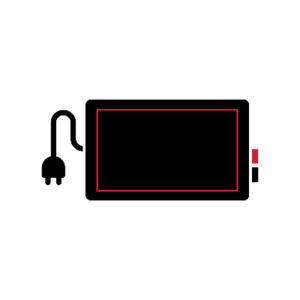Storing Lithium Iron Phosphate Batteries
Some people use their LiFePO4 batteries seasonally such as while camping in the summer or while ice fishing in the winter. It is common for some people to store lithium batteries during the off-season. When storing LiFePO4 batteries, it is important to store them properly to ensure they do not get damaged and to keep them at peak performance for many years ahead.
How to store LiFePO4 Batteries?
How do I store my lithium battery? A question we receive from our customers on a daily basis, especially in the Winter season. The answer depends on the temperature you are storing the batteries in and the period of time. Here’s a summary of how to store your LiFePO4 battery:
- Recommended storage temperature: -5 to +35°C (23 to 95 °F)
- Storage up to 1 month: -20 to +60°C (4 to 140 °F)
- Storage up to 3 month: -10 to +35°C (14 to 95 °F)
- Extended storage time: +15 to +35°C (59 to 95 °F)
It is highly recommended to store lithium batteries indoors during the off-season. It is also recommended to store LiFePO4 batteries at about a 50% state of charge (SOC) or higher. If batteries are stored for long periods of time, cycle the batteries at least once every 6 months. Do not store batteries that are discharged.
DISCONNECT BEFORE STORING LIFEPO4
Many customers have main switches to disconnect the power to the batteries. We recommend that you take the extra step to ensure the batteries are TRULY disconnected. This is because many RVs would still have components running in the background, such as the C02 sensor, backlit stereo, or some other emergency sensor that may be bypassing the main disconnect switch. The best thing to do when you’re storing the batteries is to physically disconnect the main positive and negative wires from the lithium batteries. This will ensure that during storage time, the battery is not being discharged and that you have plenty of charge in the LiFePO4 batteries when you use them again. Make sure you always use a lithium charger and not one meant for other battery chemistries.
LiFePO4 batteries have a low self-discharge rate of 2% a month. This means that when a lithium battery is stored, it’ll lose 2% of its charge capacity every month. In order to prevent a higher rate of discharge, we recommend disconnecting all power draw from your batteries. When you store LiFePO4 batteries, it is important that you store them with a state of charge (SOC) of 50% or higher. A higher state of charge is recommended when storing for an extended period of time. If you want the battery to retain a good level of charge after the storage period is over, you should charge them to 100% and store them in that fully charged state.
HOW TO STORE LIFEPO4 WITH SYSTEM
If you are storing your LiFePO4 batteries along with your entire system; such as your charger and inverter, we recommend using a battery guardian, which protects LiFePO4 batteries by disconnecting them from parasitic loads once a voltage of 11.5V is reached. If you do not have a disconnect switch installed, it is recommended that you remove the main battery connections. It is okay that the charger is disconnected while the batteries are stored since LiFePO4 batteries do not require a trickle charge.
HOW TO STORE LiFePO4 IN COLD WEATHER
Lithium cells are not affected by extreme temperatures if the battery pack is not being used. We do not recommend storing lithium batteries in very cold temperatures for extended periods of time because that could cause the ABS casing of the battery pack to potentially crack. In addition to this, hot temperatures beyond 60°C (140°F) can cause damage to other components in the battery pack, therefore it’s best to always avoid high temperatures for long periods of time. te. It is always recommended to store lithium batteries indoors and at room temperature.
RISK OF NOT CHARGING BEFORE BATTERY STORAGE
There are major consequences if you store your LiFePO4 battery without a charge. Because of the 2% self-discharge rate, the battery can become over-discharged. The level of discharge can potentially go below what the BMS can protect. This is why it is very important to charge your lithium battery before you store it. It is highly recommended that you also store the lithium battery at room temperature, especially when storing them for an extended period of time. Refer back to the first paragraph of this article to see how long you can store LiFePO4 at various temperature ranges. Over-discharging the cells due to storage without a charge can cause permanent damage and void your 10-year battery warranty. The Canbat built-in BMS logs all activities performed on the battery including storage. Every charge and every discharge is recorded, along with various other factors, such as temperature.
COLD WEATHER PERFORMANCE
When discharging LiFePO4 batteries in extremely cold temperatures (less than 0 degrees Celcius), there is potential capacity loss. For example, a 12V 100Ah LiFePO4 battery may deliver only 90Ah, 80Ah, or even 70Ah in freezing temperatures, depending on how cold it is. This is natural for LiFePO4 chemistry and it’s only temporary. The full capacity will recover when the battery warms back up. At 0°C, a CLI100-12 battery (12V 100Ah) delivers about 80 amp-hours. At -20°C, the capacity that the battery can deliver drops to about 70 amp-hours. Charging LiFePO4 batteries in freezing temperatures can cause lithium plating, a dangerous phenomenon that can cause short-circuiting. This is why all Canbat LiFePO4 batteries have a built-in BMS which protects against cold weather charging. The BMS is also responsible for protecting against other factors including:
- High-temperature charging
- Overcharge
- Over-discharge
- Internal short circuits
COLD WEATHER LITHIUM BATTRY
If you don’t want to face potential capacity loss in freezing temperatures and want to be able to charge LiFePO4 batteries in cold weather, check out our Low-Temperature lithium batteries. They are cold-weather rated, designed for Canada’s cold climates. The batteries can safely charge and discharge at temperatures as low as -20°C (-4°F).
How? Canbat LiFePO4 LT batteries have a built-in heating system featuring proprietary technology that draws power from the charger itself. No additional components are required. The entire process of heating and charging is completely seamless. The heating system automatically activates once charging below 0°C is attempted, and it automatically deactivates when it’s no longer needed. The heating system does not take power from the battery, but rather from the charger, ensuring the battery is not discharging itself. Simply plug the battery into a lithium charger and the internal heating and monitoring systems take care of the rest.
Discharging LiFePO4 in cold temperatures can decrease efficiency in terms of how much capacity the battery can output. Our proprietary technology solves that problem. When discharging lithium in freezing temperatures, the heater draws power from the battery to activate and warm the cells to ensure maximum capacity is delivered. The maximum discharge C rating of Canbat LiFePO4 is not affected by temperature.
Cold weather lithium batteries can be connected in series or parallel up to 4 units. Series connections increase the voltage while parallel connections increase the amperage. Buy cold-weather lithium batteries online with free shipping anywhere in Canada. The advanced LiFePO4 chemistry and built-in battery management system provide safe and reliable power, backed by Canada’s best 10-year warranty.
Canbat is proud to be the first and only Canadian battery company to develop self-heated lithium batteries. Our lithium cells are UL certified, ensuring safety and reliability in all applications whether it’s RV, marine, or off-grid solar. Check out our cold weather LiFePO4 batteries and feel free to contact us with any questions.
For any questions about how to store LiFePO4 batteries, feel free to phone us or send an email to support@canbat.com. We also offer 24/7 chat support to ensure we are there for you when you need us. Our Canada-based team of battery experts is always happy to help!


















Thanks for my recent battery purchase. I have a history with batteries as I am a long-term r/c enthusiast. The feedback and recommendations I received from the interactive support system were helpful and correct. Every aspect of this transaction was well done.
Great support tonight.